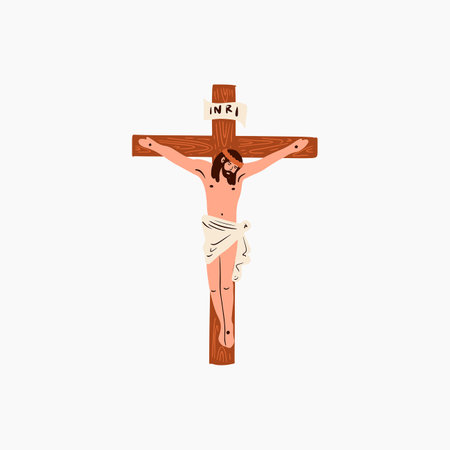Historical Roots of Dream Interpretation in British Religions
The landscape of dream interpretation in the United Kingdom is deeply layered, shaped by centuries of shifting religious traditions and spiritual beliefs. In ancient times, before Christianity’s firm establishment on British soil, the island’s Celtic and Pagan cultures saw dreams as sacred messages from the otherworld—a liminal space where ancestors, gods, and spirits reached out to guide or warn. Druids and wise women often acted as interpreters, weaving meaning from the symbols that appeared in dreams, and their counsel was sought in matters ranging from personal fate to the destiny of entire tribes.
With the arrival and eventual dominance of Christianity, British perceptions of dreams underwent a profound transformation. The early Christian church approached dreams with caution: while Biblical stories—such as Joseph’s prophetic visions—acknowledged that God could speak through dreams, church authorities also warned against placing too much trust in nocturnal images, wary of demonic deception or sinful temptation. Over time, this ambivalence led to a more guarded approach, where only dreams aligning with Christian doctrine were deemed worthy of serious reflection.
Yet, beneath this official stance, folk traditions and syncretic practices endured. Many rural communities continued to blend Christian teachings with older superstitions, consulting dream books and seeking omens in nightly visions. The Reformation and later religious upheavals brought further complexity; Protestant skepticism diminished the authority of dreams even as mystical sects—like the Quakers—embraced them as channels for divine inspiration.
This intricate tapestry of belief systems has left an indelible mark on British attitudes toward dreaming. Today’s perception is not simply a product of one faith but a subtle interplay between inherited Pagan reverence, Christian caution, and evolving secular curiosity—a testament to the enduring power of stories carried from one generation’s nightscape to another’s waking life.
2. Anglican and Christian Perspectives on Dreams
Within the United Kingdom, mainstream Christian denominations—particularly the Church of England—hold nuanced views on dreams, shaped by biblical tradition and centuries of cultural evolution. While modern British society often views dreams through a psychological lens, Christianity in the UK has historically treated them as potential vessels for divine communication or spiritual insight.
Biblical Foundations
The Bible is rich with dream narratives: from Joseph’s prophetic dreams in Genesis to the angelic messages received by Joseph, Mary’s betrothed, in Matthew’s Gospel. These stories have long influenced how British Christians interpret their own nocturnal visions. However, Anglican theology generally teaches discernment; not all dreams are considered significant, and emphasis is placed on distinguishing between divine inspiration and the workings of the subconscious mind.
Dreams in Local Worship and Daily Life
In contemporary parish life across England, Scotland, Wales, and Northern Ireland, dreams are seldom discussed overtly during services or sermons. Yet, there remain pockets within charismatic or evangelical communities where dreams are openly shared as testimonies or prayer topics. The table below outlines some key approaches among mainstream Christian groups:
| Denomination | Interpretation of Dreams | Role in Worship/Daily Life |
|---|---|---|
| Church of England (Anglican) | Cautious; grounded in scripture but wary of overemphasis | Seldom addressed publicly; private reflection encouraged |
| Roman Catholic Church | Recognises biblical precedent but prioritises official doctrine | Mainly personal; rarely featured in communal worship |
| Methodist & Reformed Churches | Focus on rational interpretation; less emphasis on mysticism | Dreams not typically discussed; valued as personal experience only |
| Charismatic/Evangelical Communities | Open to dreams as divine messages; encourages sharing with discernment | Sometimes integrated into testimonies, prayer meetings or spiritual guidance sessions |
Discernment and Modern Attitudes
Today, British Christians may quietly contemplate the meaning of their dreams but are unlikely to view them as direct revelations unless affirmed by scriptural principles or communal discernment. In this sense, UK Christian perspectives reflect both a reverence for biblical tradition and an enduring British pragmatism—a balancing act between faith and reason that continues to shape religious life and the perception of dreams across the nation.
![]()
3. Interplay of Celtic, Pagan, and Folk Traditions
Across the rolling hills and misty moors of the United Kingdom, echoes of ancient Celtic and folk traditions continue to shape the way dreams are perceived. Long before the spread of Christianity, the Celts wove a rich spiritual tapestry where dreams were gateways between worlds—a realm where ancestors whispered guidance and omens danced in moonlit visions. In these old beliefs, a dream was never just a flicker of imagination; it was a message from beyond, urging the dreamer to pay close attention.
With the arrival of organised religions such as Christianity, these ancient customs did not simply vanish. Instead, there was a subtle yet profound blending, as well as occasional clashes. For instance, Christian leaders often sought to interpret dreams through biblical frameworks—seeing them as either divine messages or dangerous temptations—yet local communities held fast to their folk rituals. The result was a uniquely British fusion: saints and spirits mingling with fairies and omens in the collective imagination.
In rural villages from Cornwall to the Highlands, you might still find remnants of these beliefs today. There are stories passed down by grandmothers about “second sight” or prophetic dreams, and rituals involving herbs like mugwort placed beneath pillows for clearer visions. Even now, some families quietly consult traditional dream books alongside their prayers, reflecting this ongoing interplay.
The tension between tradition and orthodoxy has at times led to suspicion or even persecution—particularly during periods when folk practices were labelled as superstitious or heretical. Yet the resilience of Celtic and folk dream lore speaks to something deep within the British psyche: a reverence for intuition, nature’s cycles, and the mysteries that lie just beyond waking life.
This enduring relationship between ancient wisdom and institutional faith has ensured that dreams remain both personal and communal experiences across the UK. Whether interpreted in hushed church pews or around crackling hearth fires, dreams continue to invite reflection—a quiet reminder that Britain’s spiritual landscape is shaped as much by its roots as by its branches.
4. Islamic, Hindu, and Other Minority Faiths’ Views
The United Kingdom’s vibrant multicultural landscape is a tapestry woven with threads of various immigrant communities, each bringing their unique dream-related traditions. These minority faiths – notably Islam, Hinduism, Sikhism, and others – infuse the perception and interpretation of dreams with a richness that continues to evolve within contemporary British society.
Islamic Perspectives on Dreams in Britain
For many British Muslims, dreams hold significant spiritual weight. Rooted in classical Islamic teachings, the belief that dreams can be a form of divine communication persists. Dream interpretation (ta’bir al-ru’ya) is sometimes sought from learned imams or elders, especially regarding dreams featuring prophets or symbolic animals. However, in modern Britain, these traditions are often adapted: while some families maintain the practice of seeking guidance from religious figures, others blend traditional interpretations with Western psychological insights.
Hindu and South Asian Traditions
British Hindus often view dreams as messages from deities or ancestors—a bridge between the material world and the spiritual realm. In some homes, dream diaries are kept as part of personal spiritual practice. Yet, these customs find new forms in Britain; for example, communal discussion of dreams may occur in temple groups or at cultural gatherings, merging ancient symbolism with contemporary self-reflection and mental wellness approaches.
Comparison of Dream Perceptions Across Faiths
| Faith Community | Traditional Belief | Contemporary Adaptation in UK |
|---|---|---|
| Islam | Dreams as divine messages; prophetic visions | Mixing religious interpretation with psychological perspectives; seeking advice from both imams and therapists |
| Hinduism | Dreams as spiritual communication; omens or guidance from ancestors/deities | Sharing dreams in community settings; blending symbolism with modern wellbeing concepts |
| Sikhism & Others | Dreams as reflections of karma or inner state | Incorporating dream-talk into youth groups and interfaith dialogues; using dreams for self-exploration |
The Ongoing Evolution Within British Society
The expression of dream traditions among minority faiths is not static; it adapts to the rhythms of British life. Children raised in these communities often experience a gentle fusion—elders recount ancestral stories about prophetic dreams while younger generations might interpret their meaning through the lens of mental health awareness prevalent in the UK today. This cross-pollination enriches both personal spiritual journeys and the collective story of what it means to dream on British soil.
5. Modern Secular Attitudes and Psychological Influence
In todays United Kingdom, the collective relationship with dreams has shifted considerably from its religious roots to a more secular, psychologically informed perspective. While echoes of ancient traditions still linger in the cultural imagination, many Britons now approach dream interpretation through the lens of science and personal meaning rather than divine messaging or prophecy. This transformation has been shaped in large part by the rise of psychology in the twentieth century, particularly the pioneering works of Sigmund Freud and Carl Jung, whose theories found fertile ground in post-war Britain.
Freuds ideas about dreams as windows into the unconscious mind offered a radical new narrative—one that emphasised individual experiences and hidden emotions over external spiritual authority. Jung’s concept of archetypes and collective unconscious further resonated with British seekers interested in self-discovery but wary of organised religion. Today, therapy sessions across the UK often include dream analysis as a tool for understanding one’s emotional landscape, allowing people to explore anxieties, desires, and unresolved conflicts within a safe, secular space.
Modern British attitudes towards dreams are also influenced by an increasingly scientific worldview. The popularity of neuroscience and sleep studies has demystified some aspects of dreaming, reframing it as a natural biological process essential for mental health. Public conversations around dreams now blend curiosity about brain function with a lingering fascination for symbolism—a dance between rational inquiry and creative intuition that reflects the UK’s diverse cultural tapestry.
At the same time, secularism has encouraged an openness to multiple interpretations. People might swap stories about strange dreams over tea, consulting online forums or bestselling books rather than priests or elders. Dream dictionaries sit alongside mindfulness guides on bedside tables, reflecting a society comfortable with both scepticism and wonder. In this landscape, dreams become deeply personal narratives—stories woven from each sleeper’s unique tapestry of memory, culture, and hope.
Yet even as psychological and secular frameworks prevail, some Britons still find spiritual resonance in their dreams. Whether through modern pagan practices, Christian contemplative prayer, or simply a sense of mystery that defies explanation, the age-old question lingers: what do our dreams truly mean? In contemporary Britain, the answer is as varied as its people—shaped by heritage yet open to new horizons.
6. Contemporary Rituals and Community Experiences
In the shifting landscape of modern Britain, spiritual traditions evolve while still drawing on the deep well of ancestral wisdom. Dreams, once the domain of mystics and clergy, now find their place in everyday conversations over tea or within sacred circles held in urban flats and rural village halls alike. Across denominations and even among those who identify as spiritual but not religious, dream interpretation is quietly reclaiming its place as a tool for insight and community connection.
Modern Gatherings: Dream Sharing Circles
In the heart of London, a small group gathers monthly beneath the stained glass windows of an old church-turned-community-centre. Here, participants from various walks of life—retired teachers, students, new parents—share dreams in the soft glow of candlelight. Each story is welcomed with attentive silence before gentle inquiry unfolds: “What did you feel upon waking?” or “How does this dream echo your current path?” These circles often blend Christian prayer with mindfulness techniques borrowed from other traditions, reflecting Britain’s diverse spiritual tapestry.
Personal Rituals at Home
Across the UK, individuals create their own rituals around dream interpretation. Some keep dream journals beside their beds, scribbling fragments in the early dawn. Others light incense or recite prayers—Anglican, Celtic, or inspired by newer spiritual movements—asking for guidance in understanding nocturnal visions. For many, these quiet acts serve as bridges between personal faith and a wider search for meaning.
Stories from Within the Community
One young woman from Manchester recounts how she dreamt repeatedly of water during a time of uncertainty. Sharing her dreams within her local church’s discussion group led to a deeper conversation about baptism and renewal, providing comfort and direction. In Brighton, a multicultural interfaith group invites members to bring significant dreams to monthly potlucks; here, perspectives mingle freely—some view dreams through biblical allegory, others through psychological symbolism or ancestral folklore.
These stories illuminate a subtle truth: while methods may shift and rituals adapt, the yearning to understand dreams endures in British spiritual life. Modern Britons are not merely reviving ancient practices; they are weaving them into daily experience, creating spaces where dreams inform choices, strengthen communities, and offer glimpses into the mysteries that continue to shape both soul and society.


